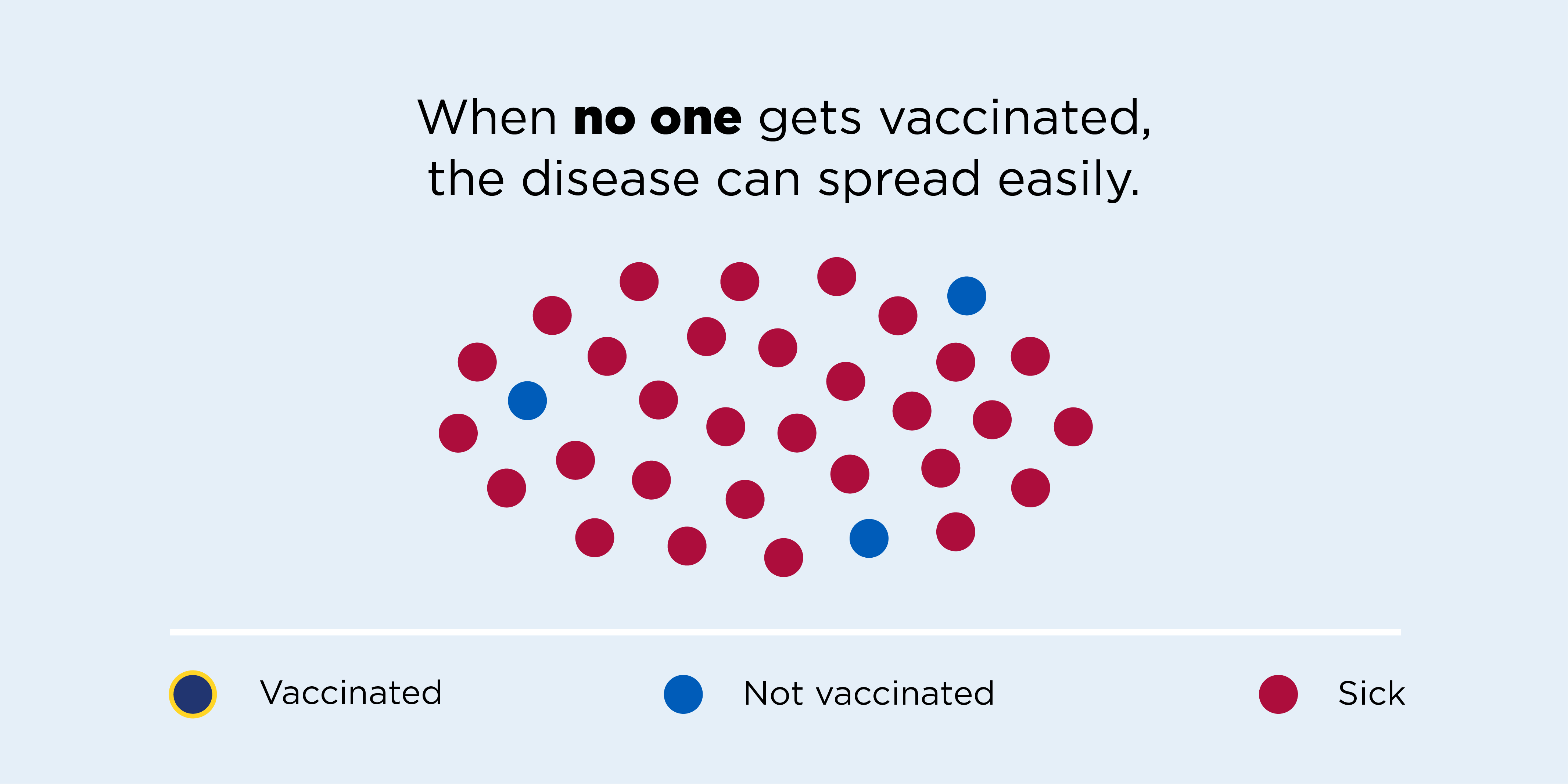Did you know that when you get vaccinated, you’re protecting yourself and your community?
This concept is called community immunity , or herd immunity. And it’s an important reason for you and your family to get vaccinated — so you can help keep yourselves and your community healthy.
How does community immunity work?
Germs can travel quickly through a community and make a lot of people sick. If enough people get sick, it can lead to an outbreak. But when enough people are vaccinated against a certain disease, the germs can’t travel as easily from person to person — and the entire community is less likely to get the disease.
That means even people who can’t get vaccinated will have some protection from getting sick. And if a person does get sick, there’s less chance of an outbreak because it’s harder for the disease to spread. Eventually, the disease becomes rare — and sometimes, it’s wiped out altogether.

Watch this animation to learn more about community immunity.
Who does community immunity protect?
Community immunity protects everyone. But it’s especially important because some people can’t get vaccinated for certain diseases — such as people with some serious allergies and those with weakened or failing immune systems (like people who have cancer, HIV/AIDS, type 1 diabetes, or other health conditions).
Community immunity is also important for the very small group of people who don’t have a strong immune response from vaccines.
If vaccines have wiped out some diseases in the United States, can we stop getting vaccinated for them?
No. Many vaccine-preventable diseases that we don’t see much in the United States still make people sick in other countries. So it’s possible for travelers to bring these diseases back to the United States, where they could then spread. If we stop getting vaccinated, we won’t be protected from these diseases — community immunity protects us only if enough people continue to get vaccinated.
If you’re traveling outside of the United States, you may need to get vaccines to keep you healthy and safe. Learn more about travel vaccines .
Community immunity at work: Pneumococcal vaccines
Pneumococcal disease can cause serious infections of the ears, lungs, blood, and brain. Although it’s common in young children, older adults are most at risk for serious pneumococcal infections.
Since the pneumococcal vaccine was approved for use in children, the number of older adults hospitalized for pneumococcal disease has gone way down. This tells us that vaccinating infants protected older adults from the spread of serious pneumococcal infections before a vaccine for older adults was available.


